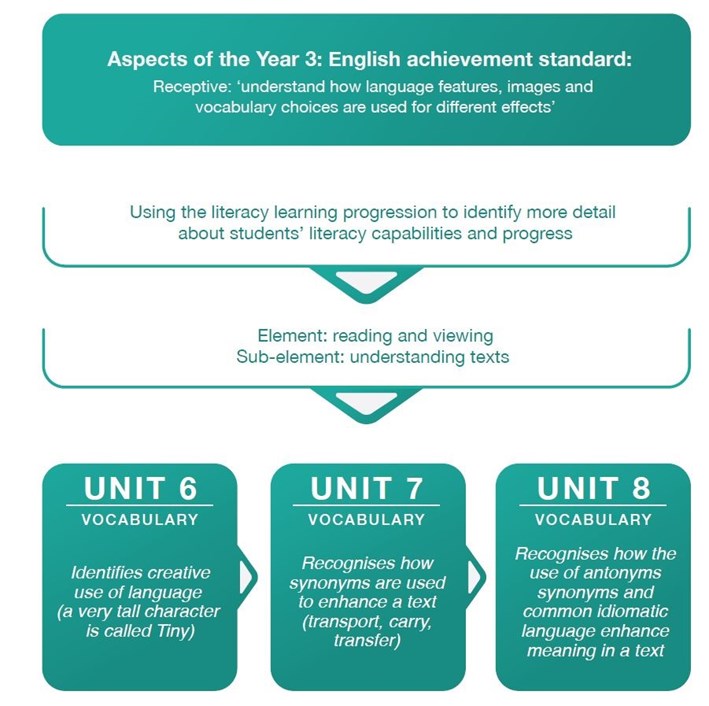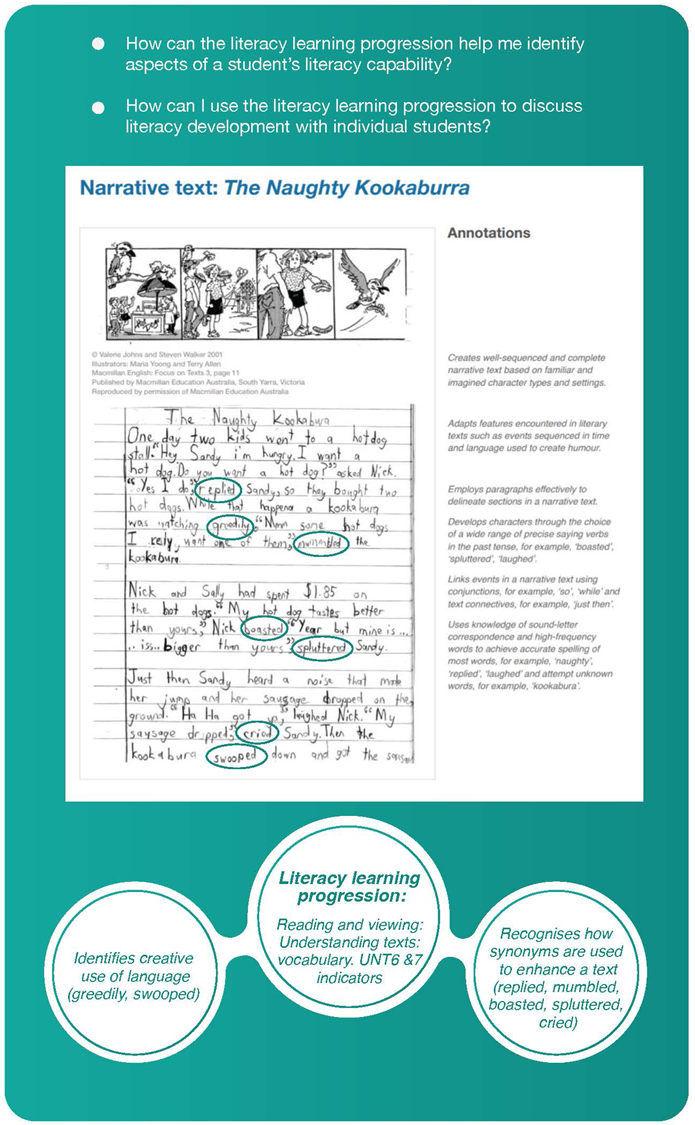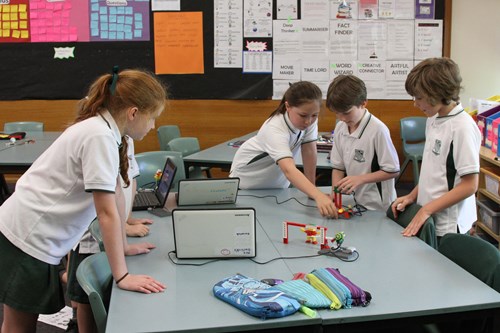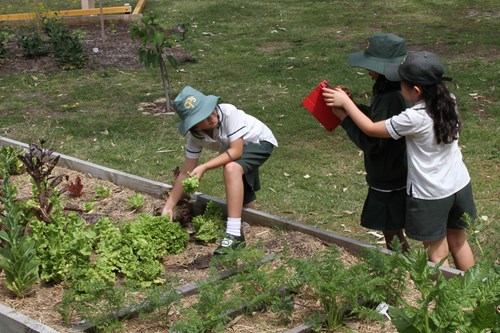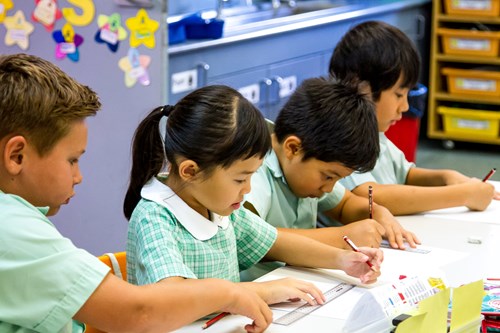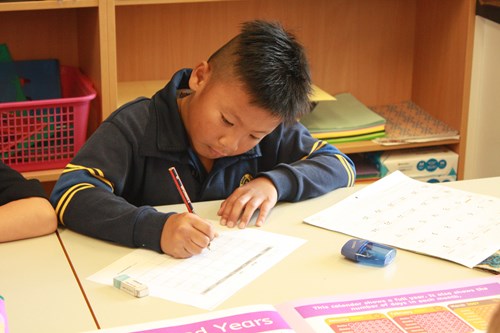By Helen Champion, ACARA Curriculum Specialist: The Arts
For many artists, speaking and writing about ideas they are exploring, the works that inspire them or the work they have made are important parts of their practice. Arts-learning offers many ways for students to reinforce and extend their listening, speaking, reading and writing skills in new contexts, and encourages them to use language dynamically and flexibly. Students develop literacy skills when they sing alphabet or number songs, when they describe the quality of movements they are using in a dance or discuss how characters in a familiar story might be feeling at different points in a narrative. Students might improvise a scene, perhaps showing different emotions, write song lyrics, a script or storyboard before using traditional performance skills and available technology to realise their ideas.
Using the literacy learning progression to identify literacy capabilities in a Years 5–6 Media Arts work sample:
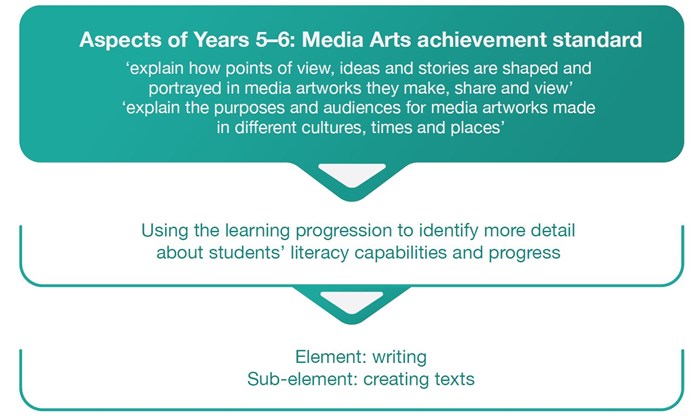
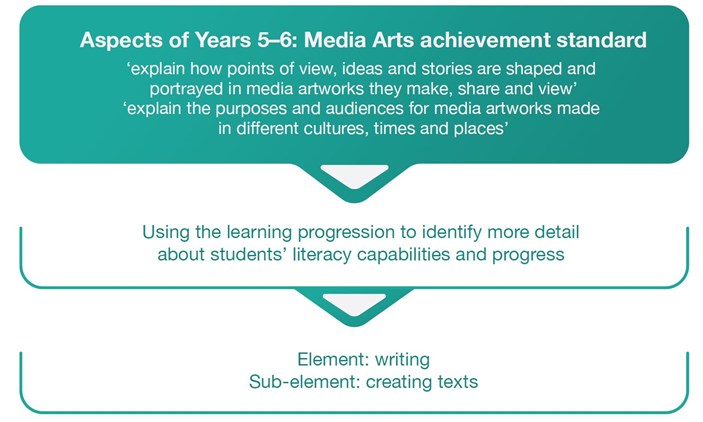
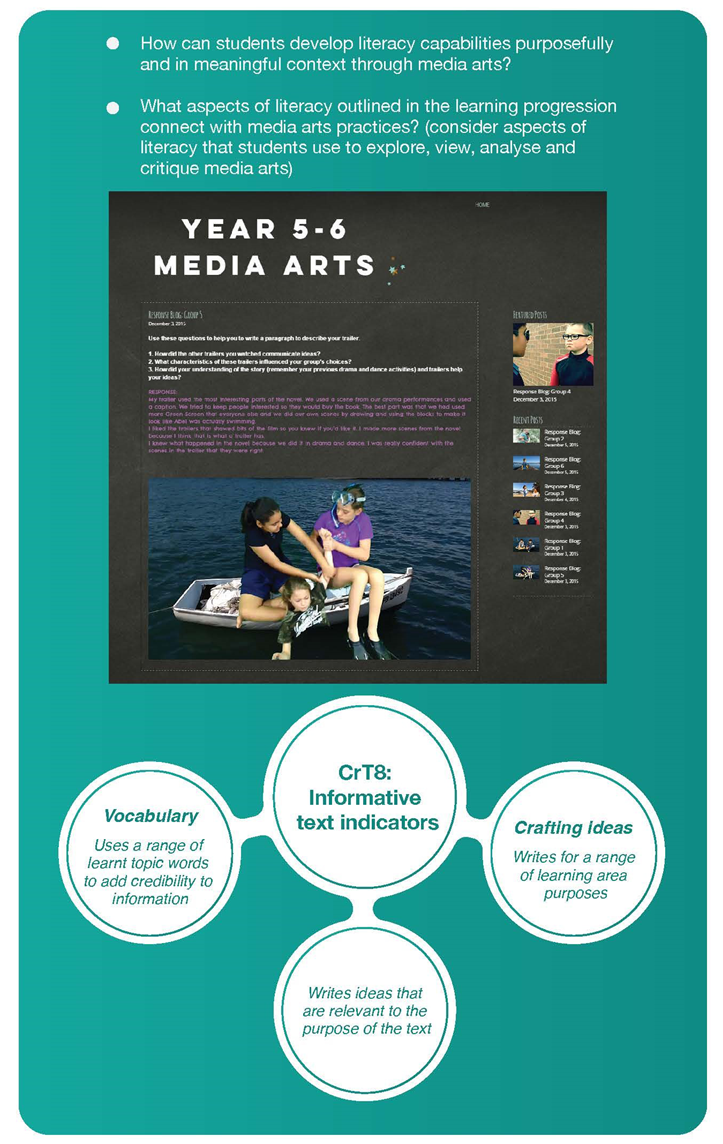
Another way to embed literacy development in The Arts learning is to use spoken or written words as a starting point. For example, in F–2: Dance, students might use words that describe ways of moving (walking, rolling, sliding, crawling, bending, turning, melting). They could begin by exploring ways to say the words expressively; for example, by varying pace or intonation and using a movement to reflect the way the words are spoken. Working in pairs, students could then improvise movements and create a dance sequence. As they develop the dance, students will be listening intently to others in their group and using language expressively.
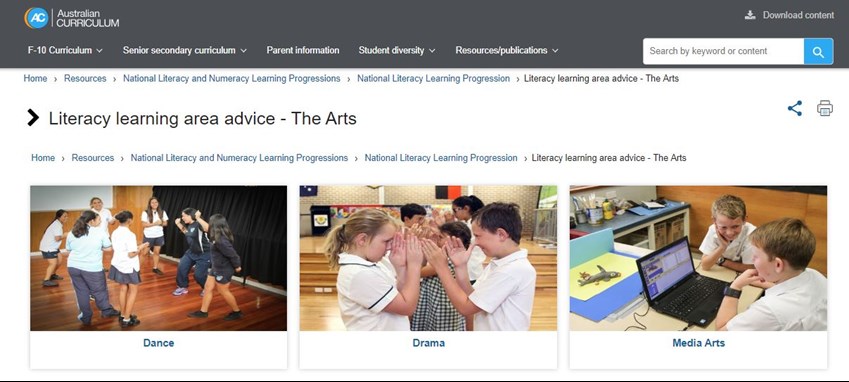
More learning advice on the literacy learning progression and The Arts can be found on the Australian Curriculum website. Note that the introductory information can be applied to all year levels; however, specific examples exist for Years 7–10 in Dance, Drama, Media Arts, Music and Visual Arts.
By Natalie Jonas, ACARA Curriculum Specialist: Primary and Health and Physical Education
The literacy learning progression is a useful tool when applying the strengths-based approach of the Health and Physical Education curriculum. Literacy underpins the development of students’ health literacy and their engagement in critical inquiry processes as detailed below.
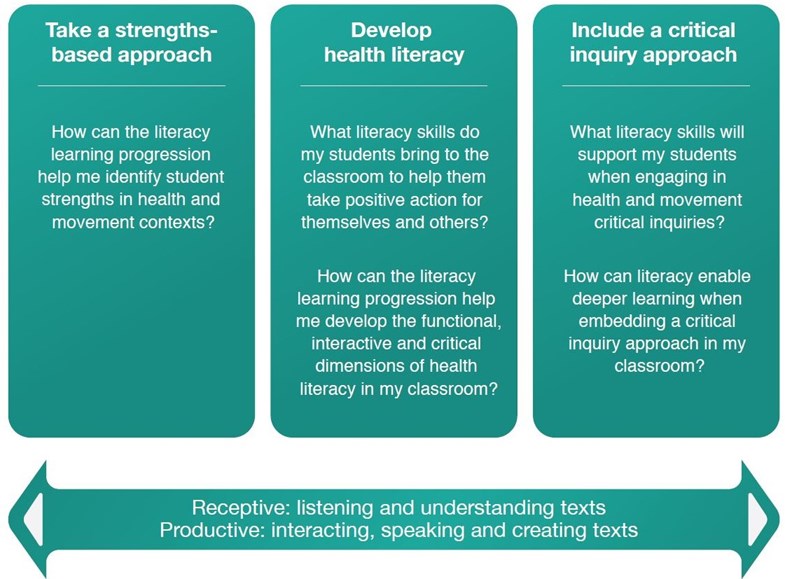
By using a relevant aspect of the literacy learning progression, primary teachers can build foundational literacy skills within Health and Physical Education practices.
Using a Foundation HPE work sample to identify literacy capabilities:
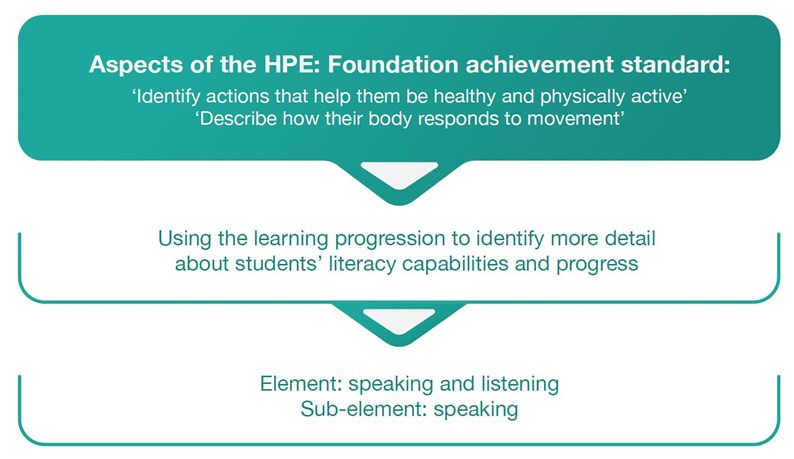
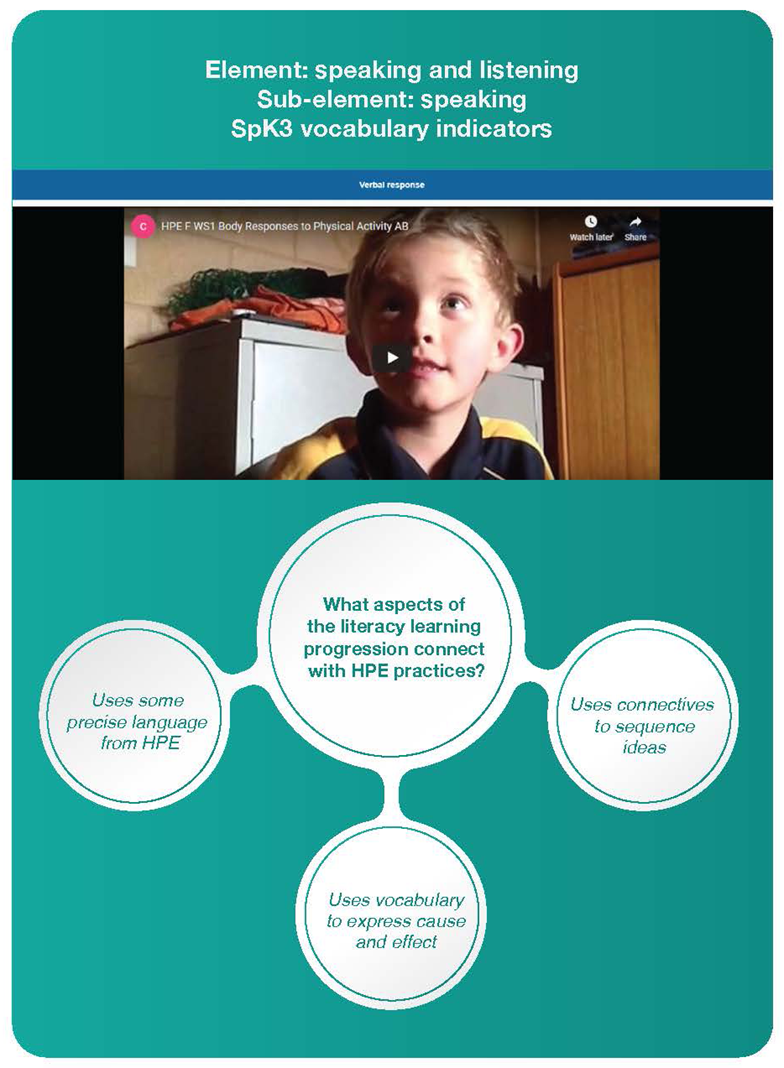
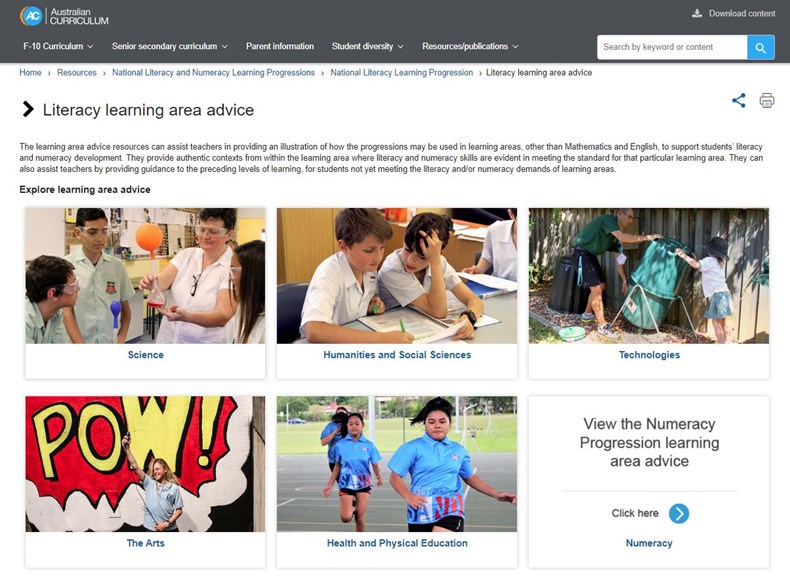
More learning advice on the literacy learning progression and the subject of Health and Physical Education can be found on the Australian Curriculum website. Note that the introductory information can be applied to all year levels; however, specific examples exist for Years 7–10.

Individual students may not neatly fit within a particular level of the learning progression and may straddle two or more levels within a progression.

Indicators at a level are not a prescriptive list and the learning progression is not designed to be used as a checklist.

Teacher judgements about student literacy capability should be based on a range of learning experiences.

Observations, discussions, performances or tasks from any learning area can provide suitable evidence of a student’s literacy capability.
You can see how the learning progressions may be used in other learning areas. Although the learning progressions provide specific support advice for Years 7–10, the introductions to each section can support F–6 teachers in their planning.
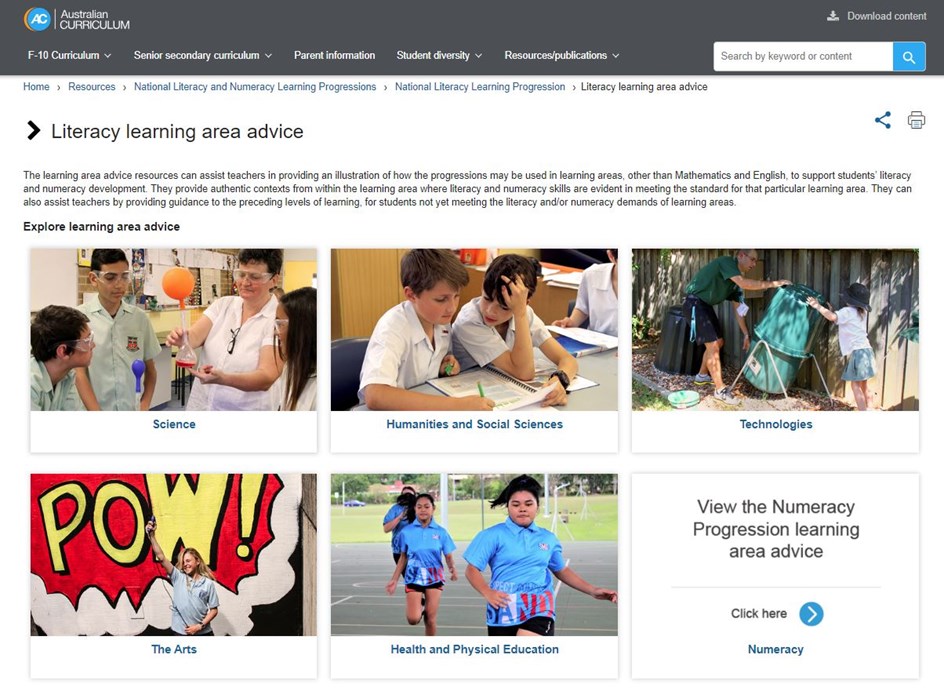
In response to user feedback, we updated the Australian Curriculum website with a new look and feel in July 2017. We invite you to participate in a quick survey to let us know about your experience with the website over the past 18 months – for example, what features have improved your browsing experience, and what resources you (or you would) find useful.
Your feedback will help us ensure the Australian Curriculum website continues to be a valuable resource for teachers around the country.
Would you like to contribute to Primary Matters? Email us at [email protected]
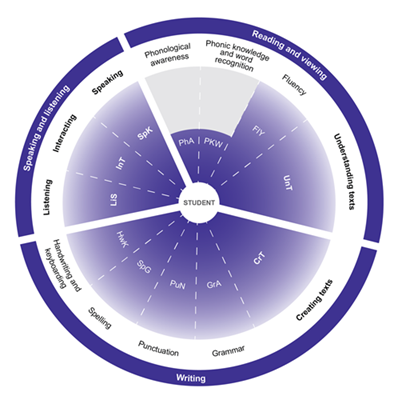
 Denise Roberts is ACARA’s new Curriculum Specialist:
Denise Roberts is ACARA’s new Curriculum Specialist: 